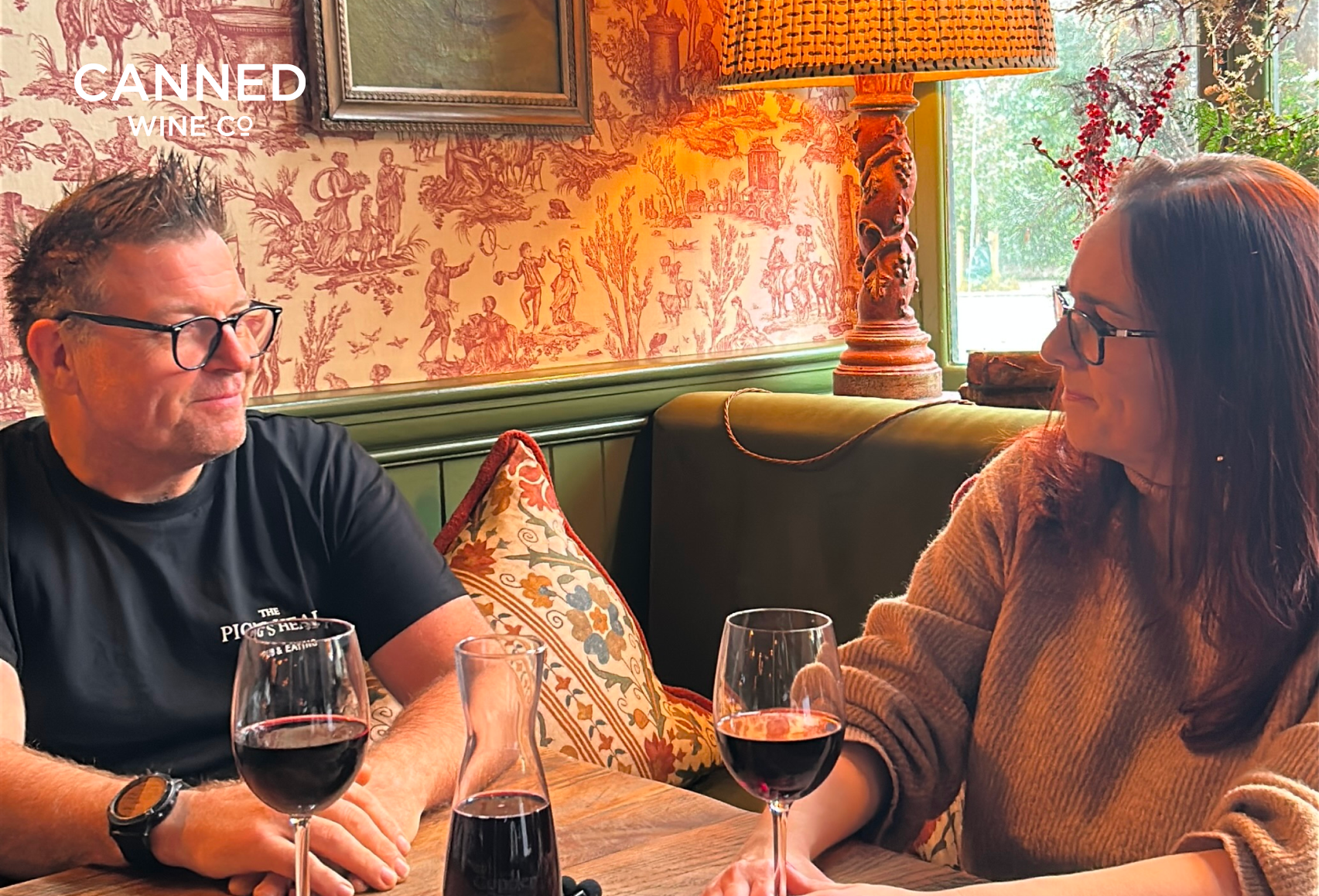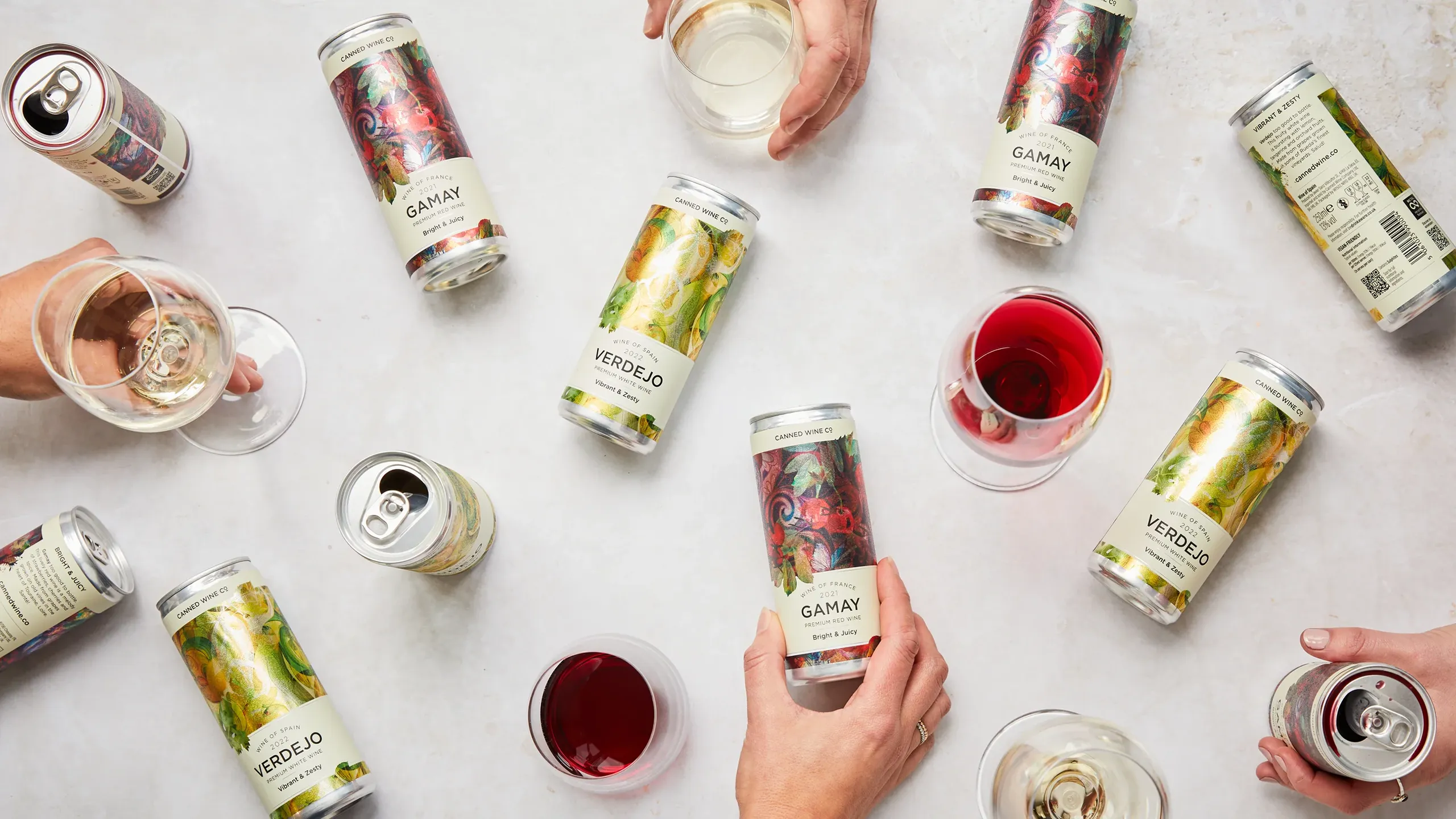At Canned Wine Co., we are always striving to learn from others and be inspired by the creativity, commitment and leadership shown by other brands and individuals. Last year, Simon and I were lucky to bump into Georgia Phillips, former Head of Impact & Sustainability at Pukka Herbs and now Responsible Business Lead at Ampa, at a University of Bath alumni event.
Georgia recently came to our office to share with our whole team how Pukka defined its purpose, built a brand on organic herbal teas and made a plan to achieve its vision of having “a world where we all care for our health and wellbeing with powerful organic plants”. An hour flew by and questions popped up across the team – from financial sustainability, to sampling in a sustainable way, re-designing packaging and defining metrics.
These were our 3 main takeaways:
Make sustainability part of your business model
As a sustainable business, it is both more authentic and straightforward from an operational point of view to start out with a sustainable business model – sustainability is much more difficult to retrofit. This mean that the product offering should align with the company values, as selling an unsustainable product (e.g. with planned obsolescence, using harmful ingredients, overly packaged goods) undermines the sustainability strategy.
It is also important to integrate sustainability into the commercial strategy itself, as revenue and profit (in the case of for-profit businesses) has to be generated to make the impact happen. 1% For the Planet only works if there are sales to donate from; career development, staff training and private healthcare, for example, can only be funded if the business survives commercially.
Sustainability has to be co-owned by all teams
It is crucial that the whole team buys into the sustainability strategy and purpose, including support from the leadership team. This is especially evident when companies grow, as it helps keep people aligned as social structures and hierarchies change.
This means that every team has to be involved in delivering the sustainability strategy as well. While the Sustainability Manager is there to guide, direct and educate, it would decelerate and decrease the possible positive impact that can be achieved, if only one person were responsible for delivering results.
At Canned Wine Co., we are currently turning our Sustainability Roadmap into a shared Sustainability Action Plan that allocates tasks to every team member. We firmly believe that sustainability is part of everyone’s role.. and there is simply too much to do for me to do it on my own!
Defining a clear purpose is key to assessing impact
To be a purpose-led business, one must understand the problem the business is trying to tackle and how this integrates with wider social or environmental causes. The purpose then filters down into the product offering, ways of operating, business goals and targets.
Based on Pukka’s purpose of “nurturing healthier, happier lives through powerful organic plants”, the team defined four areas for positive action: 1) nurturing healthier, happier lives 2) best practice organic 3) planetary health 4) business as a force for good. Each area has goals and measurables defined across the business. For example, the first pillar has the goal of sharing content with consumers to support health and wellbeing – with the result of having reached almost 450 million people with educational herbal content.
This really resonated with me and we will revisit our goals set so far to ensure that everything is aligned with our purpose at Canned Wine Co.
Thank you to Georgia for sharing her time and expertise with the team!





